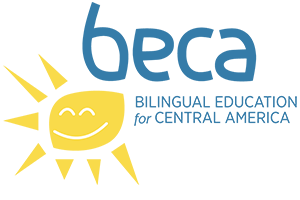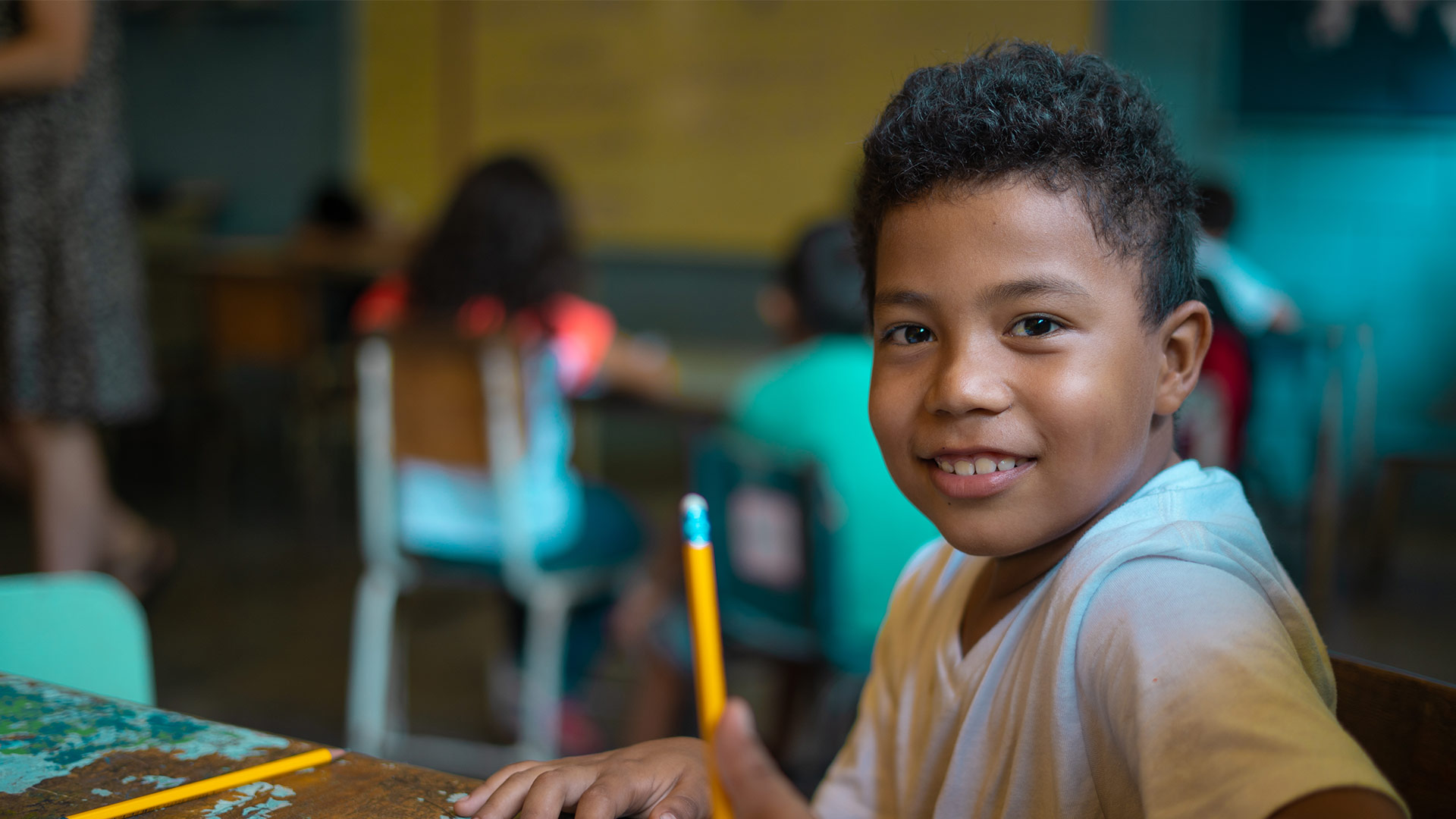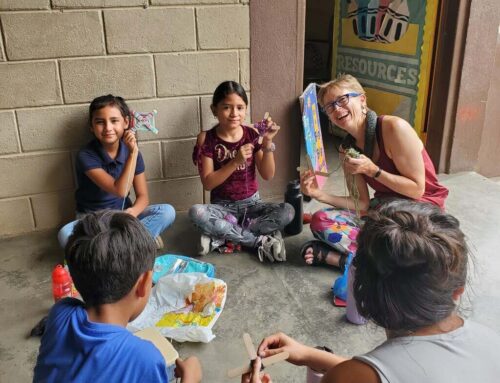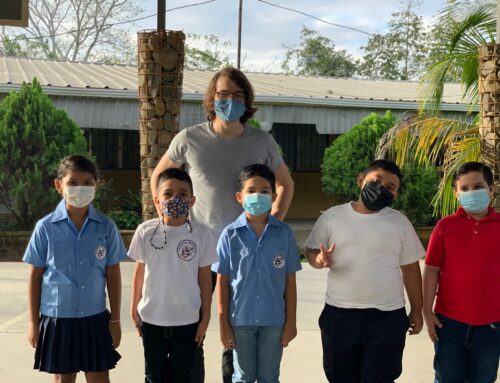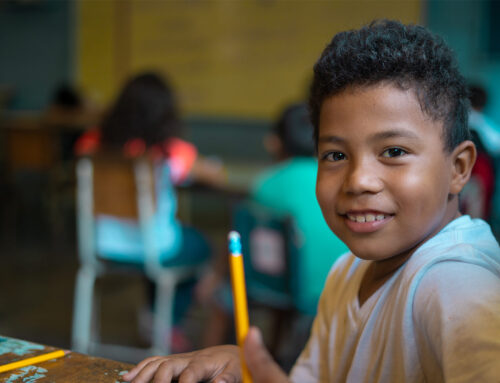In 2015, in the midst of the media coverage about the flood of Central American immigrants seeking refuge in the United State, I googled my former Peace Corps site to see if I could find any news of the pueblo. To my shock and delight, I learned that Cofradía is the home of BECA and that San Jeronimo Bilingual School in Cofradía was BECA’s first community partner school. That precious piece of information was the impetus for me to reconnect with Honduras.
OK, I’m old — I was a Peace Corps volunteer in Honduras fifty years ago (1966-68)! When Sean Bell, the Executive Director of BECA at the time, invited me to visit Cofradía, my initial response was that I couldn’t imagine returning after 50 years. But the invitation was too enticing to pass up. So, in January 2018, I flew to San Pedro and met five passionate, youthful Board members and a whole team of equally committed volunteer teachers and Honduran staff. I stayed in the home of Don Wil Fajardo and his wife who are featured in the excellent video about BECA’s history and progress. The vision for BECA was literally born in their home. Both of their children are BECA graduates who completed university studies and are now enjoying successful careers in Honduras.
One quick story. I visited a third-grade classroom and was invited to introduce myself, which I did in halting Spanish. One of the children politely raised his hand and said “you can speak in English, Senora. We will understand what you want to tell us.” In third grade, these children are totally fluent in English!
It was such a delight to see the changes in my old Peace Corps site and it was sobering to witness the persistent poverty and lack of adequate resources to provide for all children and families. Currently, BECA works with Honduran partners in three bilingual schools — located at the epicenter of a crisis that is causing tens of thousands of families to leave for the United States. Yet in spite of its location, a grand total of zero BECA graduates have come to the United States illegally!
I learned that students in BECA schools are taught much more than English. Students graduate as champions of learning and literacy, as challengers of the status quo, and as leaders who embody a service-minded attitude to become persistent advocates for social change. My husband Bob and I are volunteers for a small nonprofit in Tacoma, Washington, Advocates for Immigrants in Detention North West (AIDNW) https://aidnw.org/ The organization welcomes and supports people affected by immigration detention by connecting them to resources and the community. Several times a month, we join a small team of volunteers to wait outside the detention center gate to welcome and assist released immigrants. We meet many Central American immigrants released on bond and know there are hundreds more being sent back to their homeland with no hope for the future.
We are convinced that the best hope for Honduras is a solid education for children starting in elementary school – one that gives them a sense of self-worth, pride, and optimism. Our children and grandchildren are as committed to BECA as we are. As a family, we seek out causes and organizations that give us hope and where we know that our financial contributions can have an impact. BECA is one of our favorite investments!
Carol Spangler (is second to the right, is pictured above with her husband, children, and grandchildren)
